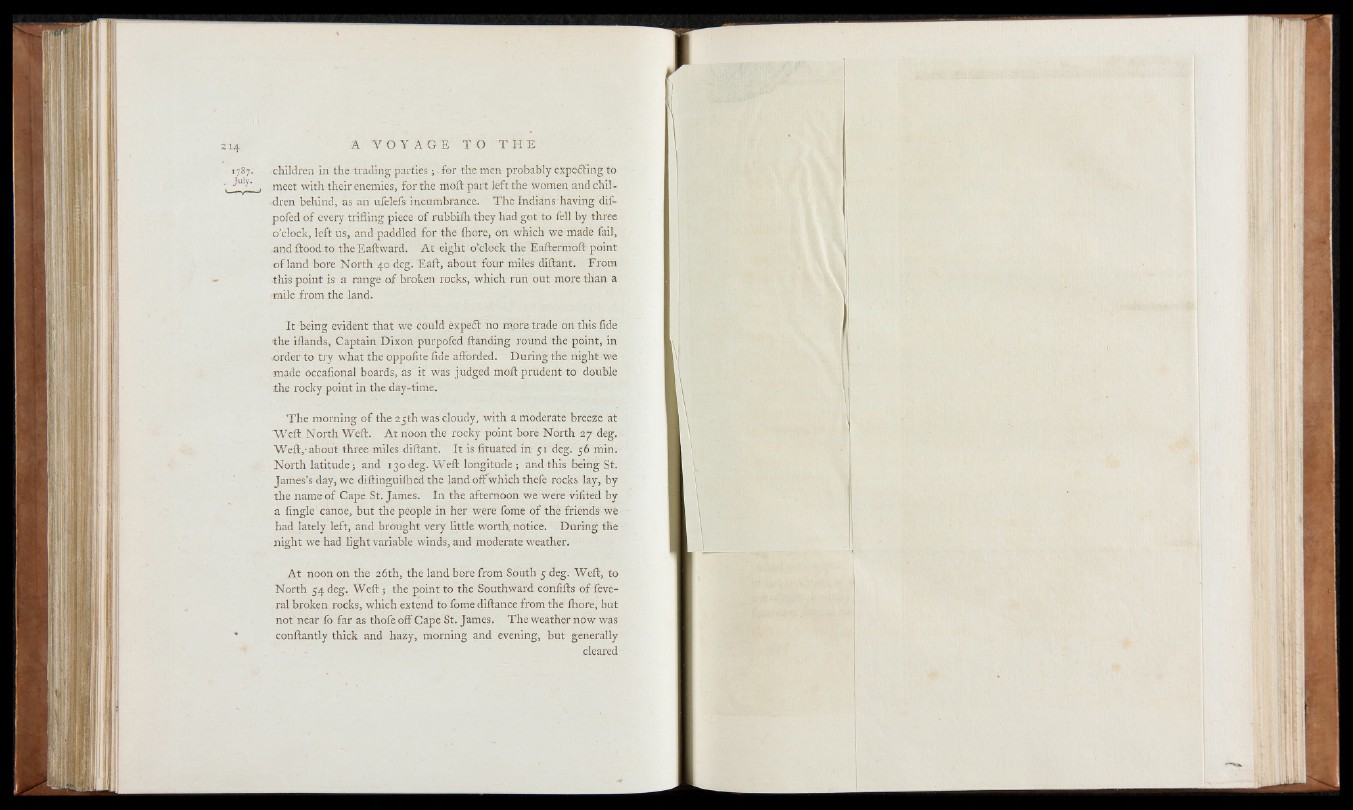
■ children in the trading parties ;. for the men probably expecting to
.meet with their enemies, for the moll part left the women and children
behind, as an ufelefs incumbrance. The Indians having difi-
pofed of every trifling piece of rubbilh they had got to fell by three
o’clock, left us, and paddled for the Ihore, on which we made fail,
and Hood to theEaftward. At eight o’clock the Eaftermoft point
of land bore North 40 deg. Eaft, about four miles dillant. From
this point is a range of broken rocks, which run out more than a
mile from the land.
It being evident that we could expect no more trade on this fide
the illands, Captain Dixon purpofed Handing round the point, in
«order to try what the oppofite fide afforded. During the night we
•made occafional boards, as it was judged moll prudent to double
the rocky point in the day-time.
'The morning of the 25th was cloudy, with a moderate breeze at
Weft North Weft. At noon the rocky point bore North 27 deg.
Weft,-about three miles diftant. It is fituated in 51 deg. 56 min.
North latitude j and 130 deg. Weft longitude 5 and this being St.
James’s day, we diftinguilhed the land offwhich thefe rocks lay, by
the name of Cape St. James. In the afternoon we were vifited by
a Angle canoe, but the people in her were fome of the friends we
had lately left, and brought very little worthy notice. During the
night we had light variable winds, and moderate weather.
At noon on the 26th, the land bore from South 5 deg. Weft, to
North 54 deg. Weft ; the point to the Southward conflits of lèverai
broken rocks, which extend to fome diftance from the Ihore, but
not near fo far as thofe off Cape St. James. The weather now was
conftantly thick and hazy, morning and evening, but generally
cleared